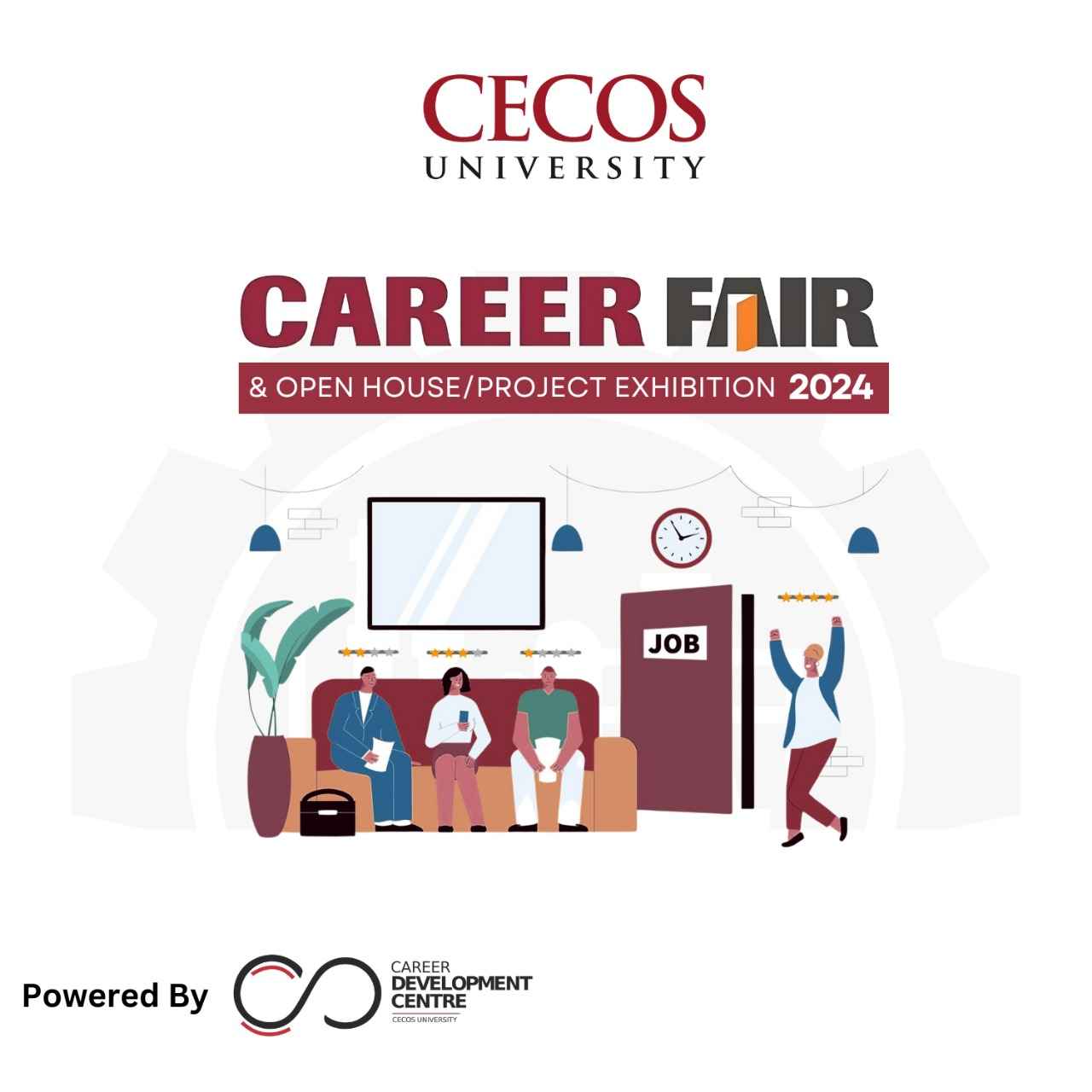
10 Emerging Skills for Professionals
Ten critical soft skills leaders should maximize to improve their leadership capabilities and...
More
Remaining
The long-awaited mega event "CAREER FAIR & PROJECT EXHIBITION/OPEN HOUSE " will take place on 21st May 2024 at CECOS University Peshawar to showcase the graduating students’ skills and final year projects.On this occasion academia and...
Event Details
The CDC’s mission is to prepare students for lifelong career achievement by, educating them on career options and self-awareness, empowering them with confidence and right skill set and connecting them with the right opportunities.
To foster a career-centered campus culture that prepares all students to pursue their unique professional and academic aspirations.
know moreMembers
Photos
Events
Awards

Job Title: Human Resource Intern.Location: Remote (Pakistan)Company: Gao Tek IncJob Description:GAOTek.Inc is offering Human Resource Internship. The responsibilities assigned to the intern...

Lejhro Technology is currently looking for a Digital Marketing Intern to join their team. This is the 4 months internship with work-from-home opportunity.Interested? Apply now!...

National Bank of Pakistan is Hiring!Job Position: Assistant Manager - Talent AcquisitionLast Date: 17 April 2024Apply By: http://www.sidathyder.com.pk/careers

CDC's pro-activity provide solutions on career development issues.

We offer consultant level facilitation career progress.

CDC is the hub for professional liason & networking.

We feel pride in developing students & alumni to achieve success.

Ten critical soft skills leaders should maximize to improve their leadership capabilities and...
More
Few are immune to the fear of public speaking. Marjorie North offers 10 tips for speakers to...
More
Remote work was rare a decade ago. Working from home was usually available only as a special...
More